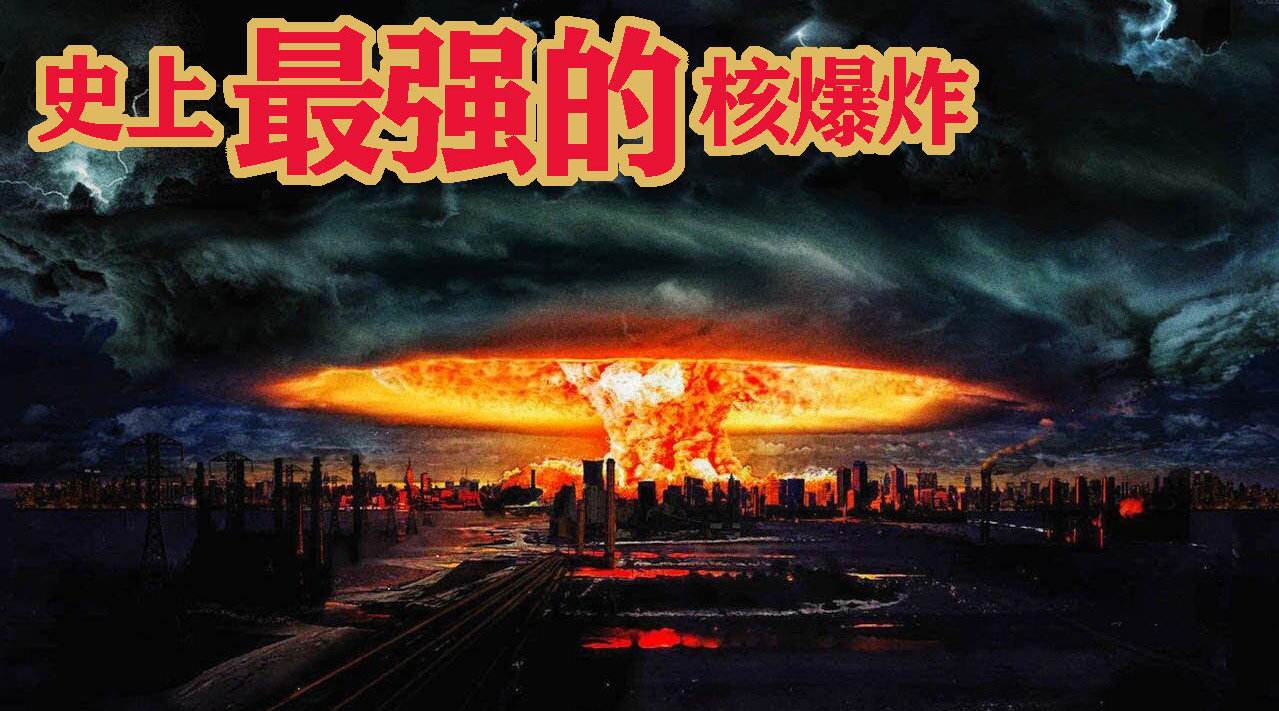The Ministry Of Industry And Information Technology Issued The "Measures For The Management Service Of Artificial Intelligence Technology Ethics (Trial) (Draft For Public Comments)"
The Ministry Of Industry And Information Technology Issued The "Measures For The Management Service Of Artificial Intelligence Technology Ethics (Trial) (Draft For Public Comments)"
The "Measures for the Management Services of Artificial Intelligence Science and Technology Ethics (Trial) (Draft for Public Comments)" is the refinement and implementation of the "Opinions on Strengthening the Governance of Science and Technology Ethics" and "Measures for the Review of Science and Technology Ethics (Trial)" in the field of artificial intelligence.
Artificial Intelligence Technology Ethics Management Service Measures (Trial)
(Draft for public comments)
Chapter 1 General Provisions
Article 1 [Purpose and basis] In order to standardize the ethical governance of artificial intelligence science and technology activities, promote fairness, justice, harmony, security and responsible innovation, and promote the healthy development of the artificial intelligence industry, these Measures are formulated in accordance with the "Science and Technology Progress Law of the People's Republic of China", "Opinions on Strengthening the Governance of Science and Technology", "Science and Ethics Review Measures (Trial)" (hereinafter referred to as the "Ethics Measures") and other laws and regulations.
Article 2 [Scope of application] The artificial intelligence scientific and technological activities referred to in these Measures are carried out within the territory of the People's Republic of China, and may bring about scientific and technological research, technology development and other scientific and technological activities that may bring about scientific and technological ethical risks and challenges in life and health, human dignity, ecological environment, public order, sustainable development, etc., as well as other scientific and technological activities that require artificial intelligence scientific and technological ethics review in accordance with laws, administrative regulations and relevant national regulations.
Article 3 [Ethical Principles] The implementation of artificial intelligence technology activities should integrate scientific and technological ethical requirements throughout the entire process, and follow the artificial intelligence technology ethical principles of improving human welfare, respecting the right to life, respecting intellectual property rights, adhering to fairness and justice, reasonably controlling risks, maintaining openness and transparency, ensuring controllability and credibility, and strengthening responsibility, and abide by our country's Constitution, laws and regulations and relevant regulations.
Chapter 2 Support and Promotion of Artificial Intelligence Technology Ethics
Article 4 [Standard Construction] Establish and improve the standard system for artificial intelligence technology ethics, promote the formulation of international standards, national standards, industry standards, and group standards related to artificial intelligence technology ethics, and support the construction of an international standardized exchange and cooperation platform. Colleges and universities, scientific research institutions, medical and health institutions, enterprises and scientific and technological social groups are encouraged to participate in the formulation, verification and promotion of artificial intelligence technology ethical standards.
Article 5 [Service System Mechanism] Promote the construction of the service system for artificial intelligence technology ethics, strengthen the supply of services such as monitoring and early warning, detection and evaluation, certification, consultation, etc., improve the ability of enterprise technology research and development and prevention of artificial intelligence technology ethics, increase the support for artificial intelligence technology ethics for small and medium-sized enterprises, and promote international exchanges and cooperation in artificial intelligence technology ethics.
Article 6 [Encourage Innovation] Encourage colleges and universities, research institutions, medical and health institutions, enterprises and science and technology social groups to carry out cutting-edge technological innovation and cross-field research on artificial intelligence technology ethics, support artificial intelligence technology ethics technology innovation, strengthen the use of technical means to prevent artificial intelligence technology ethics risks; promote the orderly open source and openness of artificial intelligence technology ethics technology, intellectual property rights and high-quality data sets, strengthen the research and development of general risk management and evaluation and audit tools, explore scientific and technological ethics risk assessment and evaluation based on application scenarios; promote artificial intelligence products and services that conform to scientific and technological ethics, and protect scientific and technological ethics intellectual property rights.
Article 7 [Propaganda and Education] Guide relevant units to do a good job in publicity and education on artificial intelligence technology ethics, give full play to the role of relevant social groups in artificial intelligence technology ethics propaganda and education on artificial intelligence technology ethics, encourage public participation, and promote practical demonstration. Mass communication media are encouraged to carry out targeted publicity and education on artificial intelligence technology ethics.
Article 8 [Talent Training] Support colleges and universities, scientific research institutions, medical and health institutions, enterprises and science and technology social groups to carry out education and training related to artificial intelligence technology ethics, promote the construction of professional system and curriculum system, adopt various methods to cultivate artificial intelligence technology ethics talents, and promote talent exchange.
Chapter 3 Implementation Subject
Article 9 [Subject] Colleges and universities, scientific research institutions, medical and health institutions, enterprises, etc. engaged in artificial intelligence technology activities are the responsible entities for the artificial intelligence technology ethics management services of their units. Units with conditions should establish an Artificial Intelligence Science and Technology Ethics Committee (hereinafter referred to as the Committee). The committee should be equipped with necessary staff, office space and funds, and take effective measures to ensure that the committee conducts its work independently. Qualified relevant units are encouraged to carry out certifications related to the artificial intelligence technology ethics management system.
Article 10 [Responsibilities of the Committee and Members] The constitution, composition and responsibilities of the Committee shall be carried out in accordance with Articles 5 to 8 of the "Ethical Measures". The committee should include experts with corresponding professional backgrounds such as artificial intelligence technology, application, ethics, and law.
Article 11 [Ethics Service Center] Local and relevant competent departments may establish professional artificial intelligence technology ethics service centers (hereinafter referred to as service centers) based on actual conditions. The service center accepts commissions from other units to provide ethical review, training, consultation and other services for artificial intelligence technology activities. The service center should establish standardized management systems and procedures, be equipped with full-time personnel with the ability to serve artificial intelligence technology ethical services, and be supervised by local or relevant competent authorities.
Chapter 4 Work Procedures
Section 1 Application and Acceptance
Article 12 [Application] For artificial intelligence technology activities that fall within the scope listed in Article 2 of these Measures, the person in charge of the artificial intelligence technology activities shall apply to the committee of the unit. If the unit has not established a committee or the committee is unable to meet the requirements for scientific and technological ethics review, he shall apply to the service center entrusted by the unit to conduct scientific and technological ethics review. No unit should entrust a service center that meets the requirements to conduct scientific and technological ethics review. The person in charge of artificial intelligence technology activities should submit application materials to the committee or service center in accordance with regulations. Application materials mainly include:
(1) Artificial intelligence technology activity plan, including research background, purpose, plan and implementation steps, legal qualification materials, personnel situation, funding sources of relevant institutions involved, algorithm mechanisms and mechanisms to be adopted, data usage type, source and acquisition method, cleaning method, test and evaluation method, software and hardware products to be formed, expected application areas and applicable populations, etc.;
(2) The assessment of the technological ethical risk of artificial intelligence technology activities and prevention and control plans, including the assessment of potential technological ethical risk caused by the expected application of artificial intelligence technology, misuse and abuse, prevention and control plans for the generation of technological ethical risks, etc.;
(III) Commitment letter to comply with the requirements of artificial intelligence technology ethics and scientific research integrity.
Article 13 [Acceptance notification and procedure selection] The committee or service center shall decide whether to accept the application and notify the applicant based on the application materials. If the decision is made, it shall clearly apply general, simple or emergency procedures based on the possibility and degree of scientific and technological ethics risks, emergency situations, etc., and conduct scientific and technological ethics reviews in various forms such as offline meetings, online meetings, letter reviews, etc. according to different procedures. If the materials are incomplete, the materials that need to be supplemented should be fully informed at one time.
Section 2 General Programs and Simple Programs
Article 14 [Implementation of General Procedures] The artificial intelligence technology ethics review meeting shall be chaired by the chairman of the committee or the deputy chairman designated by him. There shall be no less than 5 members present, and shall include different categories of members listed in Article 10 of these Measures. The service center may form an expert group and organize and implement it in accordance with the provisions of the committee.
According to the review needs, consulting experts who do not have direct interest relations in the relevant fields can be invited to provide consulting opinions. Advisors and experts do not participate in the meeting voting.
Article 15 [Review Key] The committee or service center conducts an ethical review of artificial intelligence technology, focusing on the following aspects:
(1) Fair and just, take effective measures to improve data integrity and diversity, and design algorithms, models and systems reasonably, prevent bias and discrimination, algorithmic exploitation, and ensure the objectivity and inclusiveness of resource allocation, opportunity acquisition, and decision-making processes.
(2) Controllable and trustworthy, and take relevant measures such as robust design to ensure that the model and system can cope with open environments, extreme situations and interference factors. The user can control, guide and interfere with the basic operations of the model and system. Continuous monitoring and operation, and timely remedial measures can be taken when an emergency occurs.
(III) Transparent and interpretable, and relevant information can be disclosed in a reasonable manner, including but not limited to algorithms, models, systems use, operating logic, interactive method description, potential risks, etc. Use effective technical means to improve the interpretability of algorithms, models and systems.
(4) Responsibilities can be traced, and log management and other measures are taken to clearly record relevant information on data, algorithms, models, and systems, ensuring that the entire link can be traced and managed. When problems arise, specific links can be accurately positioned and responsible persons can be determined.
(V) The qualifications of scientific and technological personnel who intend to carry out artificial intelligence technology activities are in line with the
Relevant requirements have scientific and social value, and research goals have a positive effect on improving human welfare and achieving sustainable social development. The risks of artificial intelligence technology activities are reasonable, and the risk control plans and emergency plans for science and technology ethics are scientific and appropriate, and operational.
Article 16 [Processing and Decision] The committee or service center shall make decisions such as approval, revise the application after re-approval or refuse to approve it within 30 days after acceptance of the application. The time limit can be appropriately extended and clearly extended if the situation is complicated or if it needs to be supplemented or corrected.
For modifications that require or fail to be approved, the committee or service center shall make suggestions or justify the reasons. If the applicant has any objection, he/she shall file a complaint with the committee or service center within 3 working days from the date of service of the decision. If the appeal is sufficient, the committee or service center shall make a new decision within 7 working days.
Article 17 [Tracing and Management] The person in charge of artificial intelligence technology activities should promptly identify changes in scientific and technological ethical risks and report the relevant changes to the committee or service center. The committee or service center shall follow up and review the review and approval of artificial intelligence technology activities in accordance with Article 19 of the "Ethical Measures", promptly grasp the changes in scientific and technological ethical risks, and make decisions such as suspending or terminating relevant scientific and technological activities if necessary. The interval between tracking and review is generally no more than 12 months.
Article 18 [Mutual Recognition of Results] Multiple units cooperate to carry out artificial intelligence technology activities, and can carry out mutual recognition of the results of artificial intelligence technology ethics review among units based on actual conditions.
Article 19 [Surprise Procedures Applicable] A simplified procedure may be applied if any of the following circumstances occurs:
(1) The possibility and extent of ethical risks of artificial intelligence technology activities are not higher than the conventional risks encountered in daily life;
(2) Make minor changes to the approved artificial intelligence technology activity plan without increasing the risk-benefit ratio;
(III) Follow-up review of artificial intelligence technology activities without major adjustments in the early stage.
Article 20 [Implementation of Simplified Procedures] The committee or service center shall formulate work procedures and tracking frequency for the application of Simplified Procedures for review. The simplified procedure review shall be undertaken by the chairman of the committee who shall appoint two or more members. The service center can organize and implement it in accordance with the provisions of the committee.
If the review result is a negative opinion, doubts about the review content, inconsistent opinions among members during the simplified procedure review process, general procedures should be adjusted and applied.
Section 3 Expert Review Procedure
Article 21 [Review List] The Ministry of Industry and Information Technology and the Ministry of Science and Technology, together with relevant departments, formulate and release a list of "Artificial Intelligence Science and Technology Activities that Need to Re-examination of Scientific and Ethics Experts" (hereinafter referred to as the "Review List"), and make dynamic adjustments according to work needs.
Article 22 [Apply for review] Carry out artificial intelligence technology activities included in the "review list". After passing the preliminary review of the committee or service center, the unit will apply for expert review. If multiple units participate, the leading unit shall be responsible for applying. Central enterprises, universities, scientific research institutions, medical and health institutions directly under the central and state organs shall directly report to the relevant competent departments to organize expert reviews. Other units shall report to local governments to take the lead in conducting expert review.
Article 23 [Re-examination and Implementation] The units responsible for artificial intelligence technology activities shall submit expert review materials in accordance with Article 27 of the "Ethical Measures".
Local or relevant competent departments shall organize and establish a review expert group in accordance with Articles 28 to Articles 30 of the "Ethical Measures" to review the compliance and rationality of the preliminary review opinions, and feedback the review opinions to the applicant unit within 30 days after receiving the review application.
Local or relevant competent departments may entrust service centers to implement the review work in detail.
Article 24 [Result Application] The committee or service center shall make a scientific and technological ethics review decision based on the expert review opinions.
Article 25 [Stalking after review] The committee or service center shall strengthen the follow-up review of artificial intelligence technology activities included in the "Review List". The follow-up review interval shall generally not exceed 6 months.
If there is a major change in the risk of science and technology ethics, relevant science and technology ethics review should be carried out again in accordance with Article 20 of the "Ethics Measures" and expert review should be applied for.
Article 26 [Connection with other regulatory measures] If artificial intelligence technology activities implement regulatory measures such as registration, filing, administrative approval in deep synthesis, algorithm recommendation, and generative artificial intelligence service management, and regard meeting scientific and technological ethics requirements as approval conditions and supervision content, expert review will no longer be carried out.
Section 4 Emergency Procedures
Article 27 [Emergency Work System] The committee or service center shall formulate an emergency work system to clarify the emergency review process and standard operating procedures in emergency situations such as public emergencies. Emergency work is usually completed within 72 hours. For artificial intelligence technology activities that apply to the expert review procedures, the work before the expert review is generally completed within 36 hours.
Article 28 [Emergency Procedure Development] The committee or service center shall ensure the quality and timeliness of scientific and technological ethics-related work, and strengthen follow-up work and process supervision. If necessary, consulting experts in relevant fields can be invited to attend the meeting and provide consulting opinions.
Chapter 5 Supervision and Administration
Article 29 [Trial of Responsibilities] The Ministry of Science and Technology is responsible for coordinating and guiding the national science and technology ethics supervision work, and the Ministry of Industry and Information Technology, together with relevant departments, is responsible for the human resources.
Intelligent technology ethics governance work, strengthen coordination and guidance of emergency ethics work. Each department is responsible for the management and service of the artificial intelligence technology ethics in the industry and system in accordance with its responsibilities and authority, and each locality is responsible for the management and service of the artificial intelligence technology ethics in the region in accordance with its responsibilities and authority.
Article 30 [Registration Submission Materials] In accordance with Articles 43 to 45 of the "Ethical Measures", the unit shall register the relevant situation of the committee and the artificial intelligence technology activities included in the "Review List" through the National Science and Technology Management Information Registration Platform, and submit relevant materials such as the committee work report of the previous year, the implementation report of the artificial intelligence technology activities included in the "Review List". The service center shall register in accordance with the above provisions and submit a work report for the previous year.
The Ministry of Science and Technology and relevant competent departments shall simultaneously share registration information related to artificial intelligence technology ethics.
Article 31 [Problem Reflection] Local governments, relevant competent departments, and units engaged in artificial intelligence technology activities should, in light of the actual situation of their industry, system or units, open up channels that can reflect the ethical violations of artificial intelligence technology, and deal with it in accordance with relevant regulations.
Article 32 [Dispute on Illegal and Regulatory Handling] If an artificial intelligence technology activity or the process of carrying out artificial intelligence technology ethics work, which violates the provisions of these Measures, the relevant punishment shall be imposed in accordance with the "Science and Technology Progress Law" and other laws and regulations and relevant provisions.
Chapter 6 Attachment
Article 33 [Definition of Term] If the provisions of the period involved in these Measures and are not marked as working days, they are natural days.
The "local" referred to in these Measures refers to the provincial management department determined by the provincial local people's government that is responsible for the review and management of scientific and technological ethics in the field of artificial intelligence, and the "relevant competent departments" refer to the relevant competent departments of the State Council.
Article 34 [Supporting Rules] Local and relevant competent departments may formulate or revise the local, industry and system ethical management service methods, rules and other institutional norms in accordance with the provisions of these Measures and in light of actual conditions. Science and technology social groups can formulate specific specifications and guidelines for artificial intelligence technology ethics management services in this field.
Article 35 [Special Regulations] If the relevant competent departments have special provisions on the management and management services of artificial intelligence technology in this industry and system and comply with the spirit of these Measures, they shall be implemented in accordance with their provisions at the same time. If this Measures do not provide for this
The provisions of the "Ethical Measures" and relevant laws and regulations are implemented.
Article 36 [Interpretation of the Measures] The Ministry of Industry and Information Technology, together with relevant departments, shall be responsible for interpreting these Measures.
Article 37 [Date of Implementation] This Measures shall come into force on * month*, *.
appendix:
List of artificial intelligence technology activities that require review by scientific and technological ethics experts
1. Research and development of a human-machine fusion system that has a strong impact on human subjective behavior, psychological emotions, life and health.
2. Research and development of algorithm models, applications and systems with the ability to mobilize public opinion and guide social consciousness.
3. Research and development of automated decision-making systems with high autonomy that are oriented towards scenarios such as safety and personal health risks.
This list will be adjusted dynamically according to work needs.





